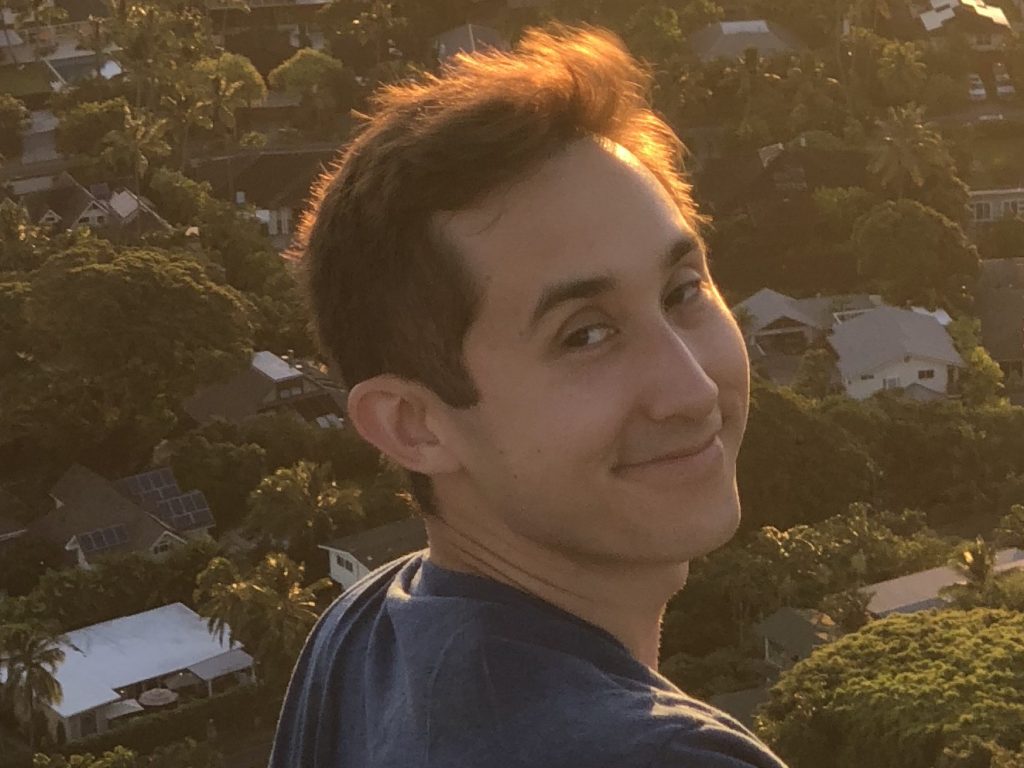We’re taking time over the following weeks to get to know the members of the GSA’s Early Career Scientist Committees. Join us every week to learn more about our 2019 early career scientist advocates.

Gavin Rice
Co-chair Early Career Scientist Steering Committee
University of Pittsburgh
Research Interest
Evolution has created diverse forms of life across this planet. Many of the most iconic examples of diversity, such as the horns of beetles, the iridescent green and blue plumage of peacock feathers, and the tusks of narwhals are due to the gain of evolutionary traits. To understand how new traits have been generated, and how to potentially re-engineer them, we need to understand the genetic basis behind their formation. Establishing a new structure likely requires the activation of hundreds of genes in the cells that make up that structure. One proposed mechanism to show how new traits emerge is through the redeployment of proteins, called Transcription Factors (TF), that direct the activation of hundreds of genes. Theoretically, the activation of a single TF could activate an entire genetic network in a new tissue. Experimental evidence for this mechanism of evolution requires a system where the expression of a TF can be genetically engineered in a species that lacks the novel trait.
To understand how new traits originate, I’m using the genitalia of the fruit fly as a model. Using in situ hybridization, I’ve identified several TFs that are expressed in novel structures. I’m now investigating the effects of perturbing these TFs to understand their necessity and what occurs if their expression pattern changes. Having a better understanding of how novel traits evolve in the fruit fly will allow us to better understand the origin of novel evolutionary traits across species.
As a PhD-trained scientist, you have many career options. What career paths interest you the most?
The vibrant and welcoming community of genetic researchers has encouraged me to pursue a career in a research-intensive setting. My previous experience in research has allowed me to explore the questions that most interest me and taught me the importance of creativity and rigor in experimental design. I have been able to take the experience working on the research questions of my advisors to carve out my own independent experiments and research systems. This has been aided by the opportunity to collaborate with experts outside of the labs I have worked in. One of my favorite projects started from a brief conversation at the GSA Drosophila Research Conference on the confusing terminology in our field. After the conference, we kept in contact and that conversation expanded into the formation of an international consortium of 12 labs that has attempted to fix this problem by establishing a standardized nomenclature. I gain energy when I am surrounded by other passionate people and would like to continue to work in that type of environment.
In addition to your research, how else do you want to advance the scientific enterprise?
I would like to provide visibility and a sense of belonging to others in science that have a disability. For a long time, I felt ashamed of my stutter and tried to conceal it. The fact that I have a stutter has made me question my ability to continue to work in science and especially academia, where oral presentations are vital for success. Because my disability is hidden, I briefly mention my stutter when I give presentations. I’ve worked diligently to gain control of my stutter and want to share my story as well as encourage others to do the same. If someone comes up to me after my presentation to ask about my stutter, isn’t due to an obvious lack of speech fluency during my presentation but because of my ability to control it. I still struggle with fluency and likely will always struggle, but I’ve been able to get my stutter under control to where it doesn’t prevent me from accomplishing my goals.
I’d like to work with scientific conference organizers to encourage those who are comfortable to share a short statement about themselves before a presentation or in their abstract. This can be something like their preferred pronoun, disability, or other factors that they feel are important to highlight. I want others within the community in similar situations to feel welcome, and these simple actions could begin to accomplish that.
As a leader within the Genetics Society of America, what do you hope to accomplish?
As a new co-chair of the Steering Committee, I am excited to meet and work with the other members of this amazing program. This is a unique opportunity to develop leadership skills such as running meetings and coordinating large scale projects. I hope to expand the lessons I have learned both as a mentor and more importantly as a mentee that will affect the larger community.
I am especially eager to continue the virtual Early Career Scientist Seminar Series. This program gives members of the GSA an opportunity to give a short presentation to their peers, as well as GENETICS and G3 editors. Beyond giving the presenters a chance to present and discuss their research with peers and editors, this project works to make presenters an integral part of the community. The opportunities to build these vital relationships have often been tied to meeting other scientists at conferences. However, conferences can be expensive and often require the ability to travel, restricting the number of people able to access these benefits. Early career scientists often feel isolated within their local surroundings and may lack the confidence or resources to reach out to others.
Allowing members of our international community to engage face to face, even if it is through a screen, can help jump-start conversations and maybe even foster collaborations. Our colleagues are the best resources for helping to interpret confusing data and exploring new areas of research. I hope to increase these connections and reduce the fear of reaching out to others with this program.
Previous Leadership Experiences
- Fellow – Professors for the Future, University of California Davis
- Co-Organizer – Workshops for Applying to the National Science Foundation’s Fellowship Program, University of California Davis
- Co-Organizer – Drosophila Terminalia Consortium, University of Pittsburgh
Connect with Gavin Rice on Twitter and his online portfolio.































